riding far blog
Our goal is to raise riders' awareness of the importance of mental and emotional skills in equestrian sport. We help equestrians achieve their personal riding goals.
WE SUPPORT, CHALLENGE AND INSPIRE EQUESTRIANS
We hope you will enjoy our insights in the forms of Casual Conversations, videos and articles aimed at helping the equestrian transform their relationships with their horses. We are passionate about sharing our knowledge, tips, tricks, and experiences.
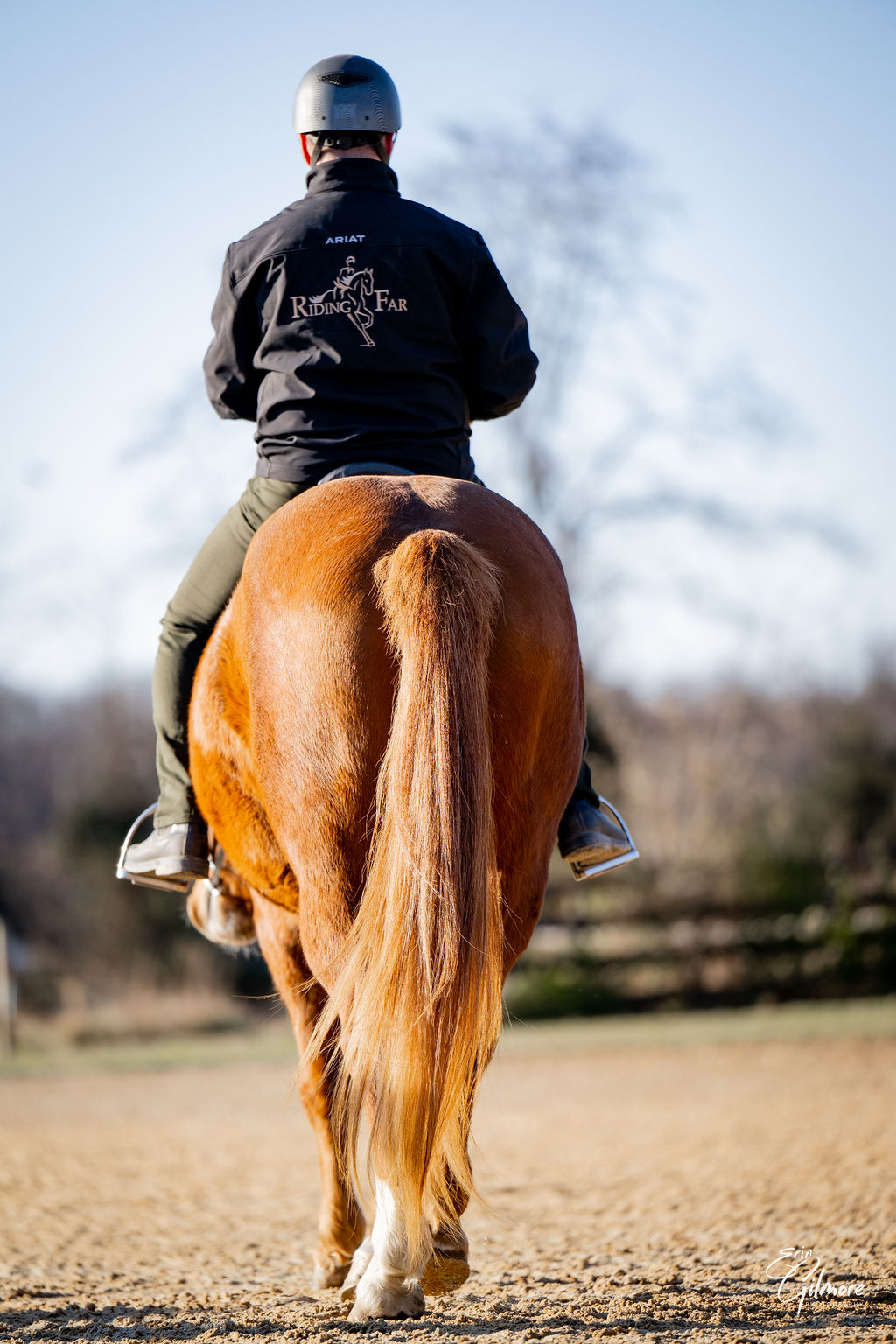
September 13, 2025
I was reminded today of one of the most important lessons I’ve learned through my time with horses. Growth doesn’t come from what I know. It comes from what I practice. My horse doesn’t respond to the book I read, the clinic I attended, or the advice I heard. He responds to me.
Personal responsibility means looking honestly at myself and asking, “Am I applying what I’ve learned, or am I hoping things will change without me doing the hard, sometimes uncomfortable work?” Growth is not easy but, it doesn’t have to be harsh if we pair our responsibility with kindness towards ourselves.
When I show up that way, my horse feels it. He trusts me more, because I’m steady and willing to own my part without blame or shame. That shift doesn’t just help our relationship—it makes me more generous with others too. Once I’ve practiced responsibility with kindness for myself, I can extend the same grace to fellow riders. Not with judgment, but with empathy: I’ve been there, I’m still learning, here’s what helped me.
Taking responsibility isn’t about perfection—it’s about practice. And when we meet ourselves with compassion along the way, the growth we find for ourselves becomes something we can gently pass along to others. ~ Paul
#PsychSaturday #RidingFar #EquestrianMindset #HorseConnection #MindfulRiding #RiderConfidence #PersonalGrowth #RidingWithHeart
Read More
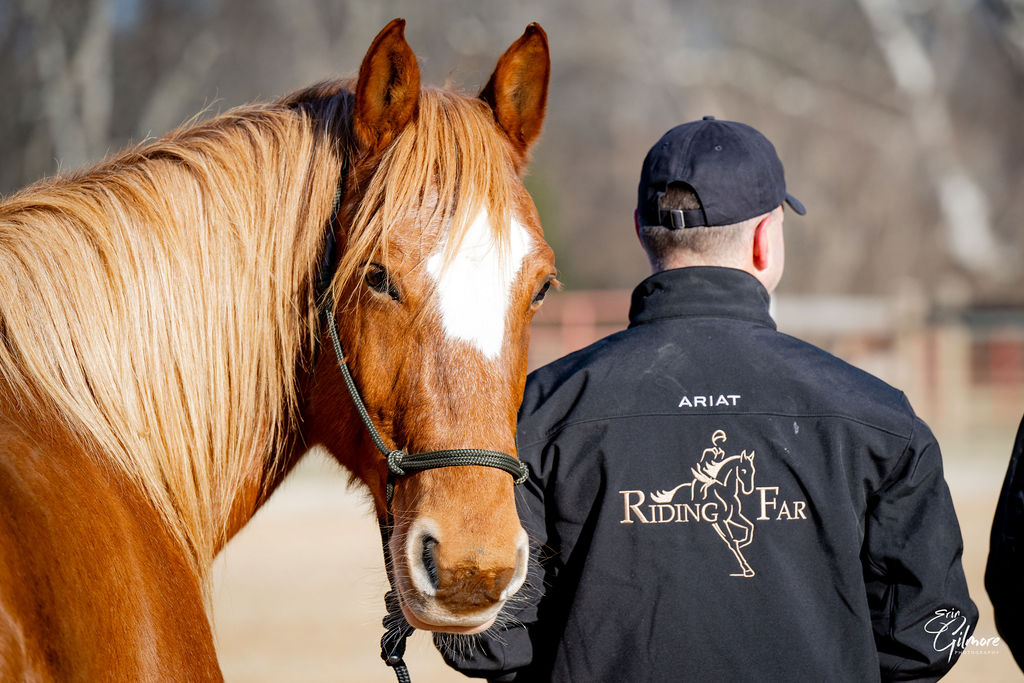
I am accosted every day with sponsored posts, infomercials, and other advertisements. We live in a world where we are constantly being sold solutions to our problems. Like many others, I would love help with a wide assortment of issues, including my hearing loss, overall wellness, weight management, fitness as an ever-aging man, and, of course, elevating my riding skill and ability.
Horse people share in this experience. The internet is flooded with solutions to a million different challenges riders face. There are products and services to fix one unsoundness or another behavioral issue. Promises, promises, and more promises.
I was recently reading a discussion in a Facebook group started by a rider facing fears. As is often the case with fear-related posts, the conversation was flooded with goodwill. People offered compassion and shared their personal stories of overcoming fear. Many normalized the experience and then offered solutions or resources that worked for them.
I do not often feel compelled to respond directly to these posts, but something about this one drew me in. I realized what had caught my attention: the conversation paralleled the way solutions are presented in the commercial world. Read this. Follow this strategy. Work with this person (including a generous endorsement of Riding Far). All of your problems will be solved. Promises, promises, and more promises. All well-intentioned.
There are obvious problems with this marketing strategy. Perhaps the most important is that no single approach or solution works for everyone. We are individuals. Certainly, there are commonalities, yet there are also differences in nearly every aspect of our being. Many times these small, subtle differences in neurology, physiology, psychology, or behavior make all the difference in whether a particular solution works for us.
What if, instead of playing off people’s problems and fears and offering amazing products and services that promise to solve everything, we elevated people and organizations that make it their mission to develop broad and deep knowledge drawn from a wide range of sources and perspectives? Imagine a service that begins with the question, “Who are you?”, honoring the individuality of both person and experience. A service that partners with you in creating a plan that makes sense for you and works with your strengths. A service that actively connects and integrates multiple perspectives and knowledge bases, rather than operating in a silo—or worse, offering services with limited education, knowledge, or expertise.
What struck me in that Facebook conversation, and what continues to shape my own work, is the realization that people do not need more promises. They need to be seen, understood, and supported in ways that make sense for them. I have experienced firsthand the allure of quick fixes, and I have also felt the deep satisfaction of discovering solutions tailored to who I am, not who someone thinks I should be. That is the kind of service I believe in and strive to provide: one that respects individuality, integrates diverse knowledge, and builds genuine partnership. In the end, it is not about selling certainty. It is about walking alongside others as they find their own way forward. Join me in championing those who ask, “Who are you?” and empower us to find solutions as unique as we are. ~ Paul
PC – Erin Gilmore Photography
#PsychSaturday #RidingFar #EquestrianLife #EquestrianMindset #SportPsychology #HorseAndRider #RiderConfidence #EquestrianWellness #MindfulRiding #EquestrianCommunity #FearlessRiding #HorsePeople #RiderGrowth #EquestrianSupport #WholePersonApproach #EquestrianJourney #RiderResilience #EquestrianWisdom #HorseRiderConnection #EquestrianCoaching
September 6, 2025
Read more
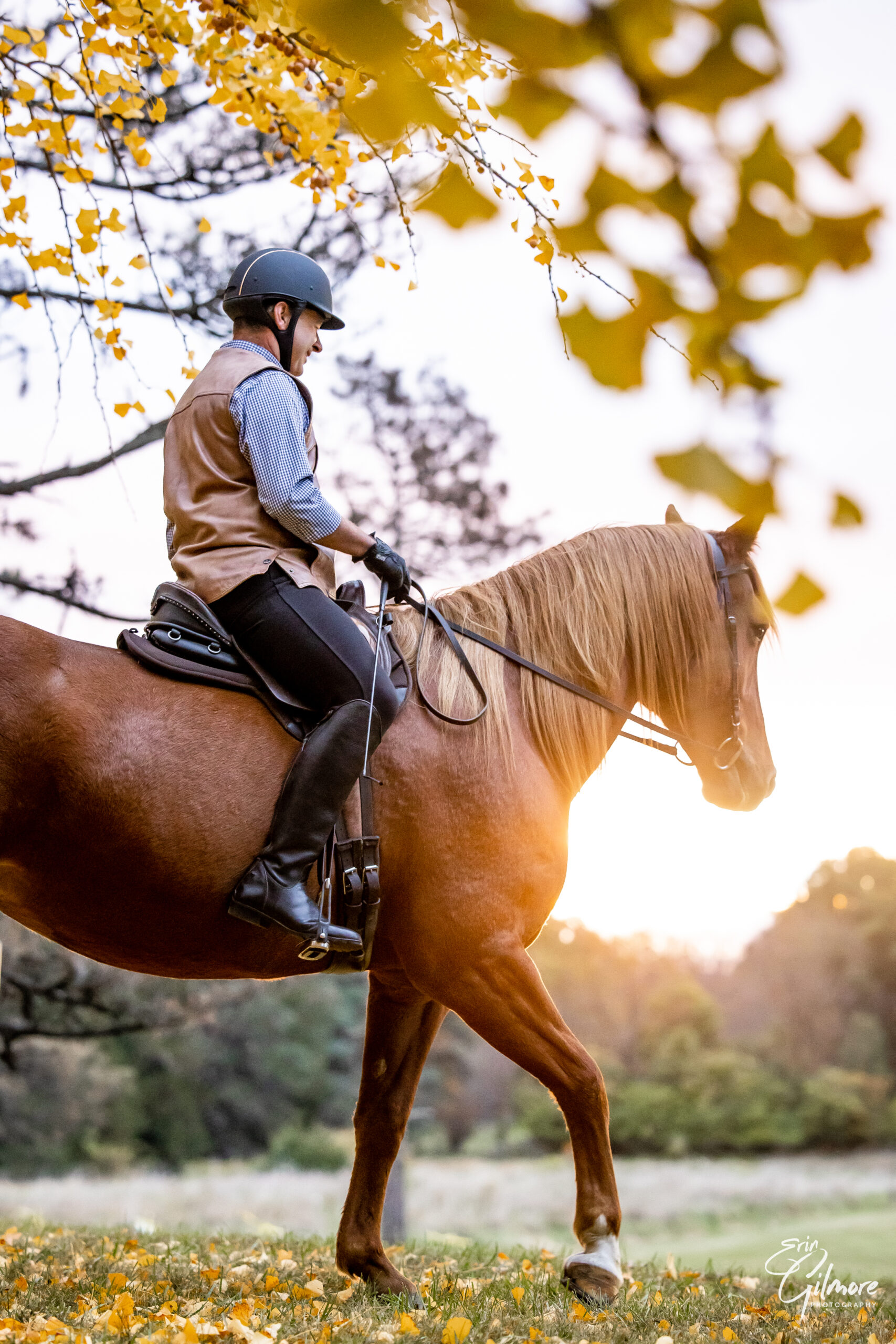
August 30, 2025
Psych Saturday: The Crucible
I remember my first introduction to a crucible in my high school chemistry class. Mr. Smith had a knack for engaging adolescent boys. The element of danger, heightened by his repeated warnings to wear protective gear and tuck away our ties to avoid catching fire, was all we needed to be captivated.
I have no recollection of the specific experiments we conducted in those labs, only vivid memories of molten metals and superheated reactions. What stuck with me was the idea that dramatic change often requires intense energy, and sometimes, it takes extreme heat to spark transformation. I was also fascinated by the crucible’s ability to contain and support those powerful reactions.
I’m certain everyone has experienced the real-life version of, “When it rains, it pours.” Challenges in life rarely come one at a time. Often, they pile on, leaving us feeling stressed, exhausted, and overwhelmed. These moments, with their intense alchemical reactions, are the very essence of life and growth.
So, here’s my question for you today: Do you have a crucible to support you during these moments of intensity and transformation? Who or what surrounds you, helping to protect and contain you as you navigate the seeming chaos of growth? For me, I am eternally grateful to my family, my horses, and my team at Riding Far for being my crucible. ~ Paul
PC – @eringilmorephotography
#PsychSaturday #PersonalGrowth #LifeChallenges #TransformationJourney #MentalStrength #SupportSystem #OvercomingObstacles #ResilienceMindset #GrowthThroughAdversity #ridingfar #ridingfarllc #equestrian #equestrianlife #sportpsychology #equestriansportpsychology
Read More
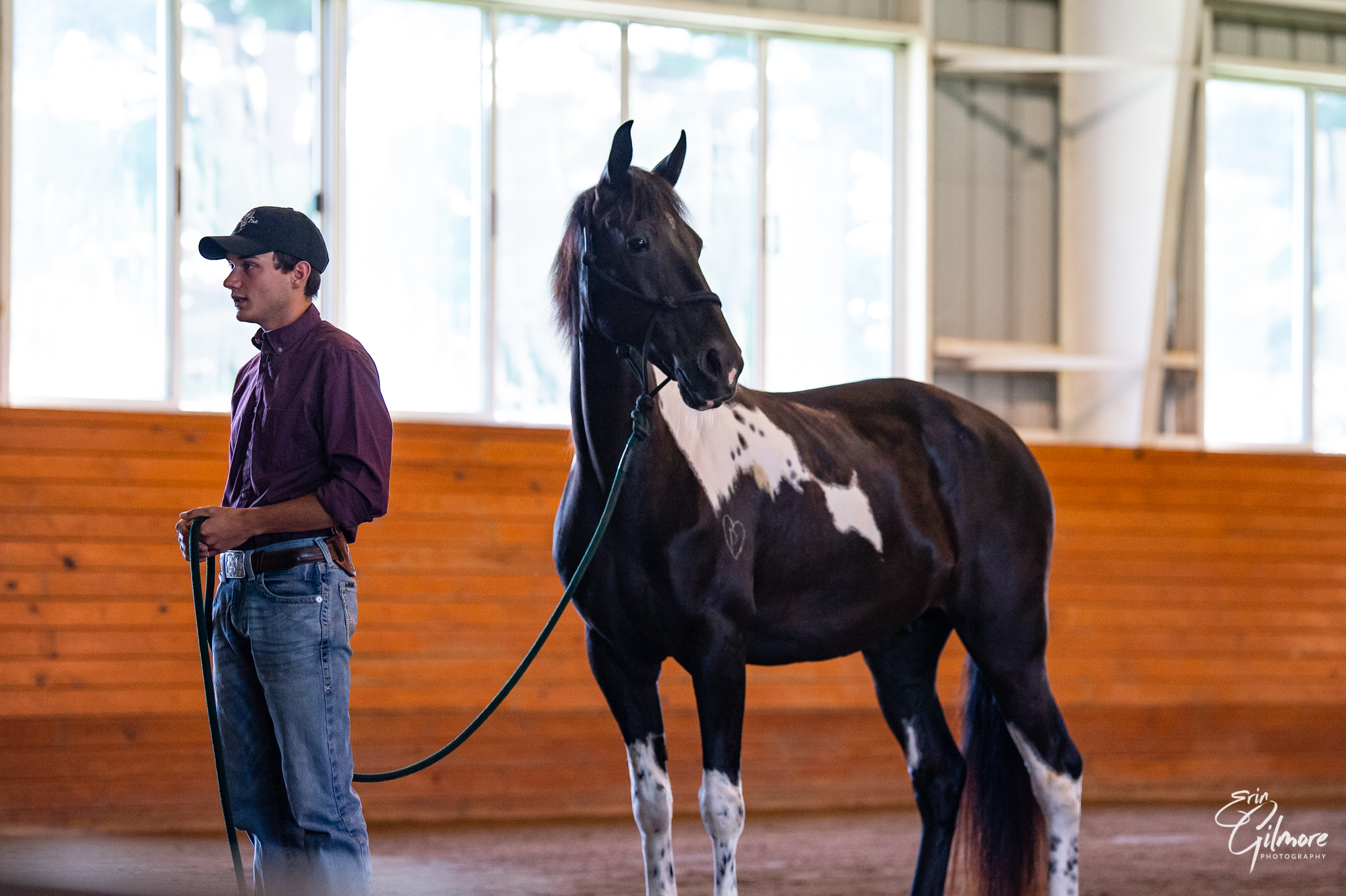
I have been on the road a lot lately. This weekend finds me in Winfield, West Virginia for the Appalachian Trainer Face Off (ATFO). The ATFO is the brain child of the Tinia Creamer and the Heart of Phoenix Rescue. If you don’t know the story of Heart of Phoenix Equine Rescue, INC and the Appalachian Brumbies, it is one worth reading about. Unwanted horses released on the old strip mines forming feral herds, struggling to survive. Tinia saw a need and did something about it. She has never looked back.
The ATFO, a 100-day trainer challenge with feral horses, showcases these horses while uniting trainers to prepare them for adoption. Each year, the competition improves in some way, benefiting the horses, the trainers, and the equestrian community.
Originally a 100-day training challenge for riding horses, the ATFO now includes a 365-day division for horses needing more time, a showcase division for non-competing horses, and a “Whipper-Snapper” division for young horses focused on groundwork. This year, the event introduced “Rider Wars,” which aims to enhance riders’ knowledge, skills, and horsemanship.
We often discuss the need for role models or heroes in our world, seeking inspiration and guidance. I used to admire people for their great accomplishments, but now I value those who embody Maya Angelou’s quote, “When you know better, do better,” as my standard for choosing heroes.
Falling short of an ideal, making mistakes, or missing the mark is not the real issue. We are all flawed, and our creations are imperfect. The critical question is how we respond when we recognize these flaws. Do we wallow in self-pity and shame? Do we blindly forge ahead to keep going? Or do we grow, develop, and strive to do better?
I have missed the mark in my life and work more times than I can count, and I haven’t always handled my mistakes well. Even when I tried to do better, my efforts were far from perfect. Spending time with passionate, deeply human individuals working tirelessly to make a difference inspires me to keep striving to do better. I hope you’ll join me. ~Paul
#AppalachianTrainerFaceOff#HeartOfPhoenix#HorseRescue#FeralHorses#Brumbies#EquestrianCommunity#HorseTraining#RiderWars#WhipperSnapper#EquineAdoption#DoBetter#Horsemanship#InspireChange#TaniaCreamer#WinfieldWV#EquestrianInspiration#MakeADifference#horses#relationshipswithhorses#ridingfar#ridingfarllc#equestrian#equestrianlife#sportpsychology#equestriansportpsychology
August 23, 2025
Read more

August 17, 2025
I have been traveling on weekends for the past several weeks. Each Saturday morning, or Sunday this week, I turn to my habit of putting a few thoughts into words. It would be easy to view my writing practice as work, a job, or a demand. In some ways, it fits that category, as it is my expected contribution to the Riding Far team’s effort to connect with and offer something to our community.
This morning, my writing has me reflecting on perspective and its powerful impact on our thoughts and feelings. A snapshot might capture a moment of discomfort or frustration, or it could just as easily depict a moment of ease or joy. Each moment is like a note that reveals a truth, but that truth pertains only to that moment. What does that moment mean? Can a single image, or even a collection of images, capture a meaningful part of the whole?
If we take a video, we capture a series of moments moving through time. This offers more context and allows us to see the flow of energy, much like a few measures of the music of our lives. It provides more information and opens the door to understanding how our experiences, both within ourselves and with others, are connected. It reveals qualities like playfulness, conflict, or partnership. At times, it hints at our dynamic power to create and influence the nature and impact of our lives over time.
When we string those videos together, day after day, week after week, month after month, year after year, a deeper understanding unfolds. Songs emerge that tell of stuckness and stasis or growth and change. We learn about the process of unfolding, about what leads to what, and about the world of possibility. If we are fortunate, we gain insight into our character, connections, and personal style. We discover the beauty of shared joys and connections, as well as the extraordinary gift of growth and our willingness to take responsibility for ourselves. We also see the healing and beauty that come from repairing ruptures we have created in our relationships.
So, I leave you with a simple thought today. Whether you are judging yourself or others in this world, be careful not to stop at one note. Better yet, challenge yourself to seek more than just a few measures. As I listen to the songs of my life, I gain a deeper appreciation for my strengths and failings. I also feel a profound sense of possibility and am inspired to keep singing. ~ Paul
#PsychSaturday #Perspective #PersonalGrowth #Mindfulness #SelfReflection #Connection #Community #GrowthMindset #Relationships #Inspiration #Storytelling #horses #relationshipswithhorses #ridingfar #ridingfarllc #equestrian #equestrianlife #sportpsych #equestriansportpsych #sportpsychology #equestriansportpsychology
Read More
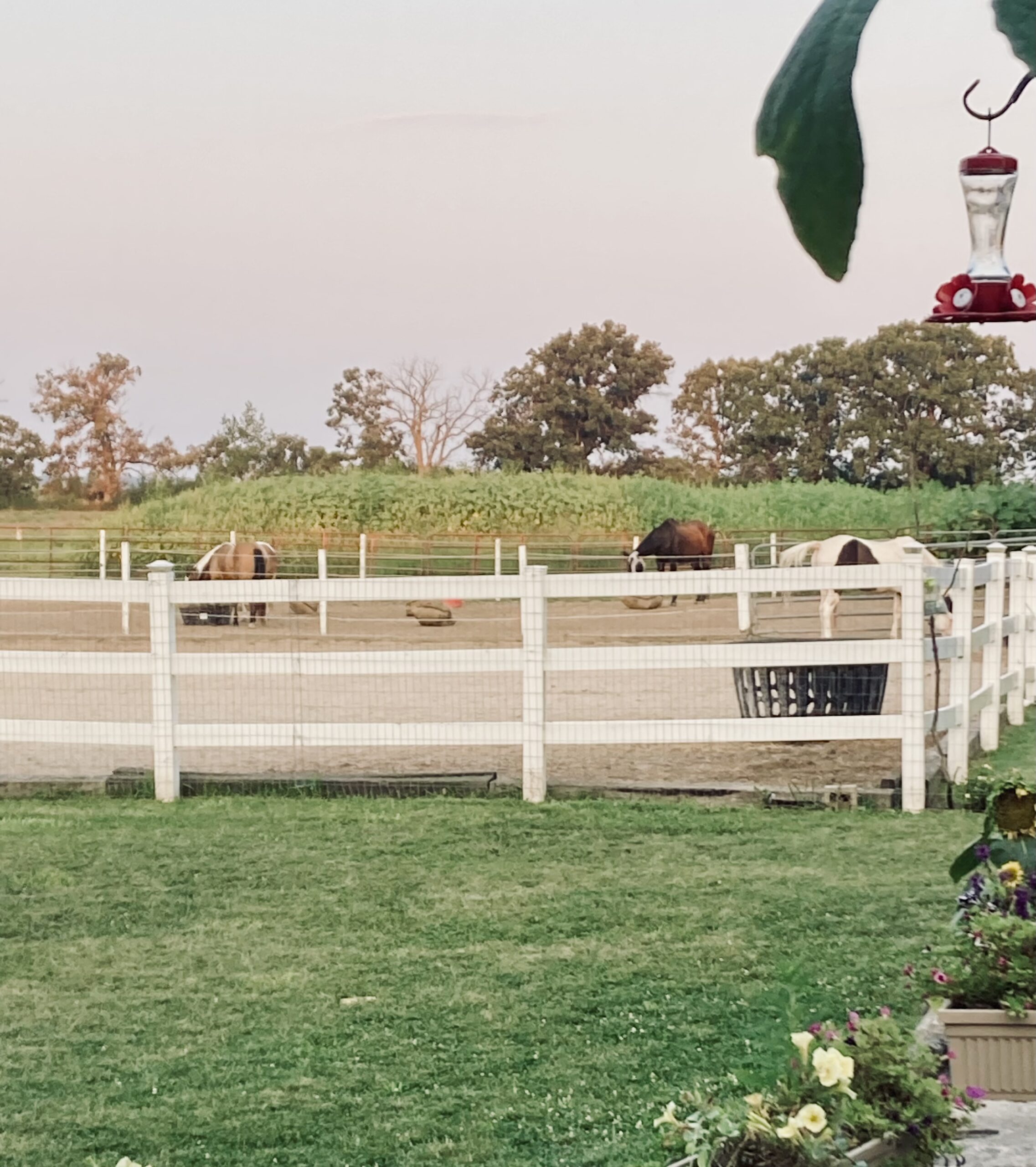
Psych Saturday: Connection – What is it Anyway?
This morning, I sit at our friends’ farm, Empress Stable and Sanctuary, in Paris, Wisconsin. I have known Arieahn for nearly twenty years and first met her daughter, Ciara, about fourteen years ago. They are people with whom I feel deeply connected, even though we haven’t spent much time together recently. They invited Justin and me to teach a clinic called “Calming Fears through Connection.”
Justin and I have taught so many clinics that we no longer need to spend extensive time planning or preparing. We know each other exceptionally well, seamlessly picking up on and expanding each other’s thoughts as we teach. While I cherish this level of confidence and comfort in our clinics, occasionally, a concept or phrase we frequently use catches my attention. I realize that these words, central to our teaching, are often ill-defined or, at worst, misunderstood.
Connection is one such word. What does connection truly mean? What are we seeking, nurturing, and cultivating with each other, our horses, and, perhaps most importantly, ourselves?
Last night, during an introductory experience, we witnessed Justin building a connection with a young mare at liberty. He then demonstrated connection through the in-hand flexions we learned from Pippa Callanan, allowing us to explore the same ideas in interactions we use everyday in our riding. It was a joy to engage in this demonstration as a laboratory rather than a lecture.
We didn’t fully clarify what connection is, except to say it’s akin to love. It’s a word that gains meaning and expression as it unfolds, experienced uniquely by each of us. Despite the challenge, we arrived at a few thoughts I’d like to share.
First, connection is relational. It lives and grows between beings. Whether we’re discussing two humans, a human and a horse, or even our relationship with parts of ourselves, connection cannot exist with only one party.
Connection is mutual. It involves seeing and being seen, thriving in the exchange of energy and information, the back-and-forth cycles of communication. Energy alone isn’t enough; energy without meaning is chaos. Imbuing energy with meaning, such as setting an intention, is also insufficient, as it’s a one-sided process. True connection requires shared meaning, where the intention aligns with its impact on the other.
Connection is imbued with quality. While all beings may be connected in some way, when we speak of connection, we refer to qualities that soothe our souls. Words like lightness, respect, calm, safety, curiosity, and playfulness emerged as we sought to describe the connections we wish to nurture. Although our horses don’t speak English, we discussed their ways of being that embody these qualities.
I’m excited to spend today continuing this exploration, taking it further by examining how connection helps us and our horses regulate ourselves. I’m honored to share this adventure with each participant. I invite you, wherever you are, to explore your own expressions of connection with yourself, the important people in your life, and your horses. And, we would love for you to share your insights so we can grow with you. ~ Paul
#HorseConnection #EmotionalBonding #RelationshipBuilding #EquineConnection #MindfulConnection #MutualTrust #HorseAndHuman #ConnectionMatters #SelfRegulation #RelationalLiving #SharedMeaning #CalmingFears #RidingFarLLC #EquestrianSportPsychology
August 9, 2025
Read more
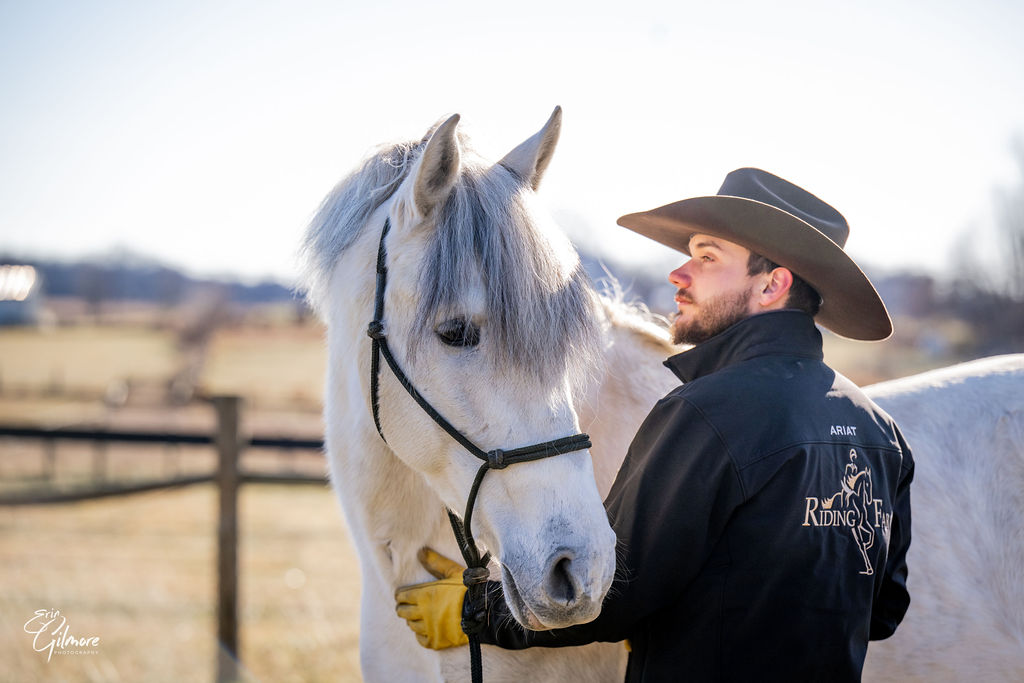
August 2, 2025
Lately, my mentors have been on my mind: Paul Kern, Micky Way, Brother Kevin Barry, Dr. Cliff Notarius, Dr. Rob Adamski, Dr. Pam Rudat, Ron Klein, and many others. I’m not sure why they keep surfacing in my thoughts and conversations, but I feel deeply grateful for the kind, generous, and talented people who have guided me. Each has touched my life in a meaningful and unique way.
Despite their differences, I can’t help but wonder what these remarkable individuals share. There must be something in how they view the world and connect with those around them. If I could identify and embrace that quality, I could share it with the people in my life: clients, family, and friends alike.
I’ve puzzled over this question until, like the Grinch, my “puzzler” was sore. Each time I reflect, I arrive at the same realization: in their presence, I felt deeply seen, valued, and, I dare say, loved. Another thought consistently emerges: somehow, I knew they believed in me.
Their belief wasn’t tied to my professional or material success, though they had confidence in my ability to achieve those. It was a deeper belief, harder to articulate. The closest I can come is that they believed in my potential to flourish, no matter the direction I took or the challenges I faced. They believed in my possibility.
As a therapist and mentor, I have the privilege and honor of holding that same possibility for my clients. With experience, I’ve grown more connected to this belief. Part of it is confidence in myself, but increasingly, it’s a quiet, deep, and powerful belief in my clients and their potential. In the face of their struggles, this belief anchors me, offering them a steady place to find stability as they navigate their challenges.
I see the same quality in Justin when he trains horses. As he has matured as a horseman, I notice his quiet, steadfast calm when a horse is struggling to understand or find safety. Justin deeply believes the horse will find its way, and he offers that belief through his grounded presence.
When we truly believe in the possibility of ourselves and others, whether horse or human, we open the door to profound connection. This belief lights a path through vulnerability, impatience, fear, and angst, bypassing aggression or harm toward ourselves and the world. This is the greatest gift my mentors gave me: the belief that it’s possible.
~ Paul
PC – Erin Gilmore Photography
#MentorshipMatters #BelieveInPossibility #InspiringConnection #GrowthAndGuidance #PowerOfBelief #horses #ridingfar #ridingfarllc #equestrian #equestrianlife #sportpsychology #equestriansportpsychology
Read More
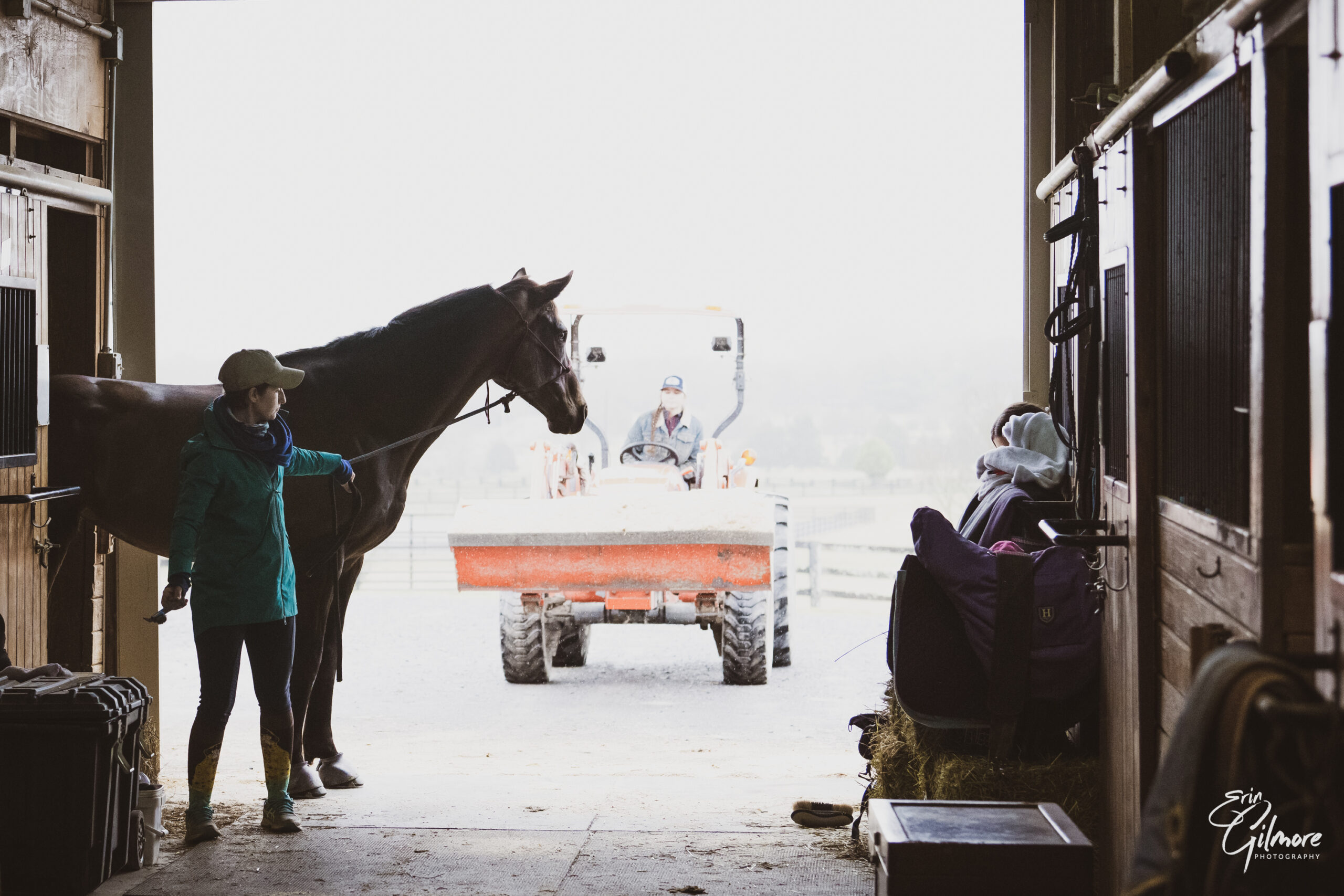
I was recently talking with my brother about the challenges our family has faced over the past year. In the middle of our conversation, he thanked me for supporting him and my siblings. Then he said, “I hope you don’t take this the wrong way, but it’s so nice to see that you’re human. You sometimes come across as a little professorial.”
In that moment, I noticed my reactions: warmth, connection, love. And, at the same time, maybe more than a hint of… En Garde! I think I laughed out loud. I’ve received that same “professorial” feedback throughout my adult life from my wife, children, trusted friends, supervisors, and colleagues. It’s a small part of who I am and a much larger part of how I present myself.
So why the defensive reaction? Why the surge in my nervous system? Why that familiar feeling of being challenged, as if someone had raised their sword and shouted, “En Garde!”?
In my personal and professional experience, most of us, no matter how tough we appear on the outside, have a vulnerable, gooey center within. It’s a natural part of growing up and living in this world to learn how to protect ourselves… physically, psychologically, emotionally, and spiritually. Each of us, with our unique neurology and life experiences, develops distinct ways of perceiving and responding to the world.
Some of us become distrustful, always scanning for the next threat, ready to defend ourselves, sometimes with extreme measures. On the other end of the spectrum, some attack the world stridently, as if the best defense is a strong offense, striving to avoid vulnerability altogether.
Most of us, I believe, fall somewhere in the middle. At times, wariness takes the lead. Other times, we become strident or rigid in the face of conflict. And sometimes, in precious moments of peace, security, and groundedness, we stand on solid ground.
When we feel grounded, we gain access to awareness—awareness of our vulnerability and our capability. We see ourselves, others, and situations more clearly. We assess threats more realistically and, in my experience, realize that everyday conflicts are often not as threatening as they feel. In these moments, we can respond thoughtfully, adaptively, and flexibly.
I believe that protecting ourselves from vulnerability lies at the core of many conflicts. Whether conscious or not, it fuels rigid intolerance and authoritarian actions. Whether it’s an elevated horseman or horsewoman dismissing all other perspectives or an instructor digging in their heels in a battle of wills with a student, we must ask ourselves, “What are we protecting?”
There will always be times when we, or those we work with, face real dangers—physical, psychological, emotional, or spiritual. In those moments, it’s critical to hear the shout of “En Garde!” and marshal our abilities to ensure safety. But let us also commit to self-awareness and groundedness, so we can better distinguish between real dangers and what merely feels like a threat.
~ Paul
PC – Erin Gilmore Photography
#EmotionalResilience #SelfAwareness #VulnerabilityIsStrength #MindfulnessMatters #PersonalGrowth #EquestrianMindset #LifeLessons #PsychologyInsights #InnerStrength #horses #ridingfar #ridingfarllc #equestrian #equestrianlife #sportpsych #equestriansportpsych #sportpsychology #equestriansportpsychology
July 26, 2025
Read more
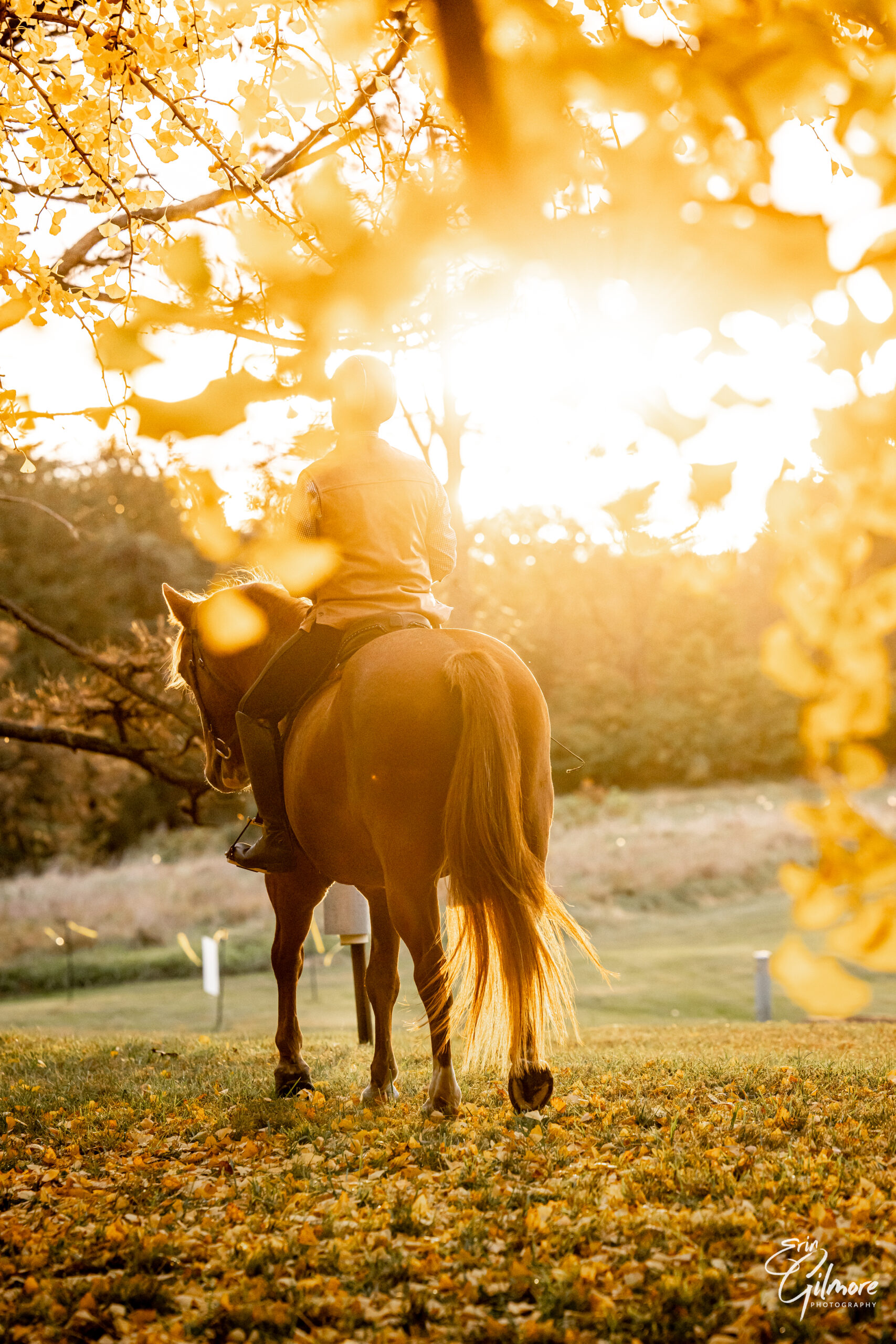
July 12, 2025
My work as a therapist involves holding space for people to experience their emotions in a rich, textured way. Often, these feelings stem from profound life challenges; loss, traumatic injury, or life-threatening illness, to name a few.
Some clients resist giving themselves permission to fully feel their natural emotional responses. They minimize their struggles or compare them to others’ hardships, saying things like, “These are first-world problems,” or “Others have it worse than I do.”
Others experience their pain differently, where it overshadows everything else. They become consumed by grief, worry, sadness, or anger. For a time, in their world, nothing else seems to matter.
Last week, I had the privilege of riding with Pippa Callanan. If you haven’t heard of her, I enthusiastically recommend looking her up and seeking an opportunity to audit a clinic or ride with her. She is remarkable in countless ways. During this clinic, she guided me to explore dynamic balance in movement in a way that felt fresh and enlightening. I learned to maintain awareness, offer support or correction when my horse, Nubble, and I lost balance, and then soften and allow without micromanaging once we found it.
Today, I will visit my youngest sister, who is battling end-stage cancer and has recently transitioned to comfort care. I am deeply aware of the contrast between her experience and my own struggle with a host of strong, complex emotions. I want to honor her and be present in a way that is connected and authentic. Yet, I also recognize the dangers of ignoring or minimizing my own feelings, as well as the risk of losing balance and letting my emotions consume me entirely.
I will strive to apply the lessons of balance and lightness from my ride to my time with my sister today. I aim to honor her and all that she faces while maintaining awareness of my own experience. Hopefully, I can find that balance and then soften, allowing us to be together in a space of compassion, empathy, softness, and lightness.
Life is challenging for all of us. Love and honor both yourself and others. Here’s to finding softness and lightness as you seek and hold your own balance in life and relationships.
~ Paul
PC – Erin Gilmore Photography
#balance #horses #balanceinlife #ridingfar #ridingfarllc #equestrian #equestrianlife #sportpsych #equestriansportpsych #sportpsychology #equestriansportpsychology
Read More
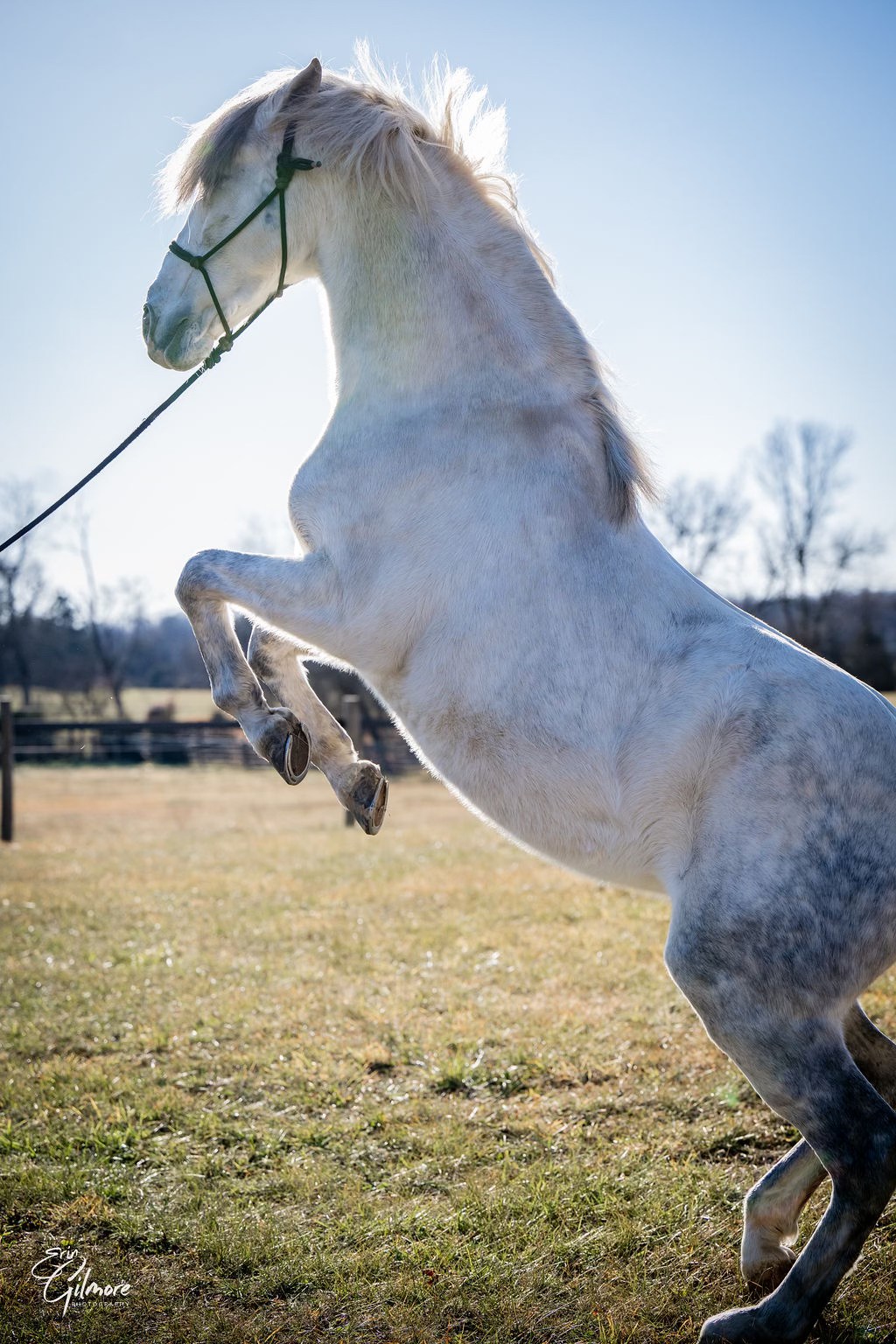
I noticed a trend in my work this week. Well, really, a trend throughout my career. Most people have a really hard time identifying their strengths.
Whenever I teach a clinic, whether I am working with instructors or riders, I start the group by having participants introduce themselves and share one thing they are challenged by and one thing they are really good at… You guessed it. The challenges come popping out spontaneously, one after the other. Identifying their strengths is consistently the struggle.
I often wonder why we have such a hard time naming and claiming our strengths. Working from our strengths, even when addressing our weaknesses, is fundamental to almost every endeavor: performing, competing, learning, and teaching. Yet, either we manage to keep ourselves in the dark about our best qualities or, we are somehow embarrassed to claim them and bring them to the world.
There is no shame in having talents, skills, abilities, and positive personal qualities. Nor is their shame in having areas we struggle and desire to grow. An honest assessment of ourselves provides a solid foundation for growth. Let’s claim all of who we are. ~ Paul
#Strength#horses#PersonalStrengths#HonestSelfAssessment#equestrian#equestrianlife#sportpsych#equestriansportpsych#sportpsychology#equestriansportpsychology#RIdingFar
June 26, 2025